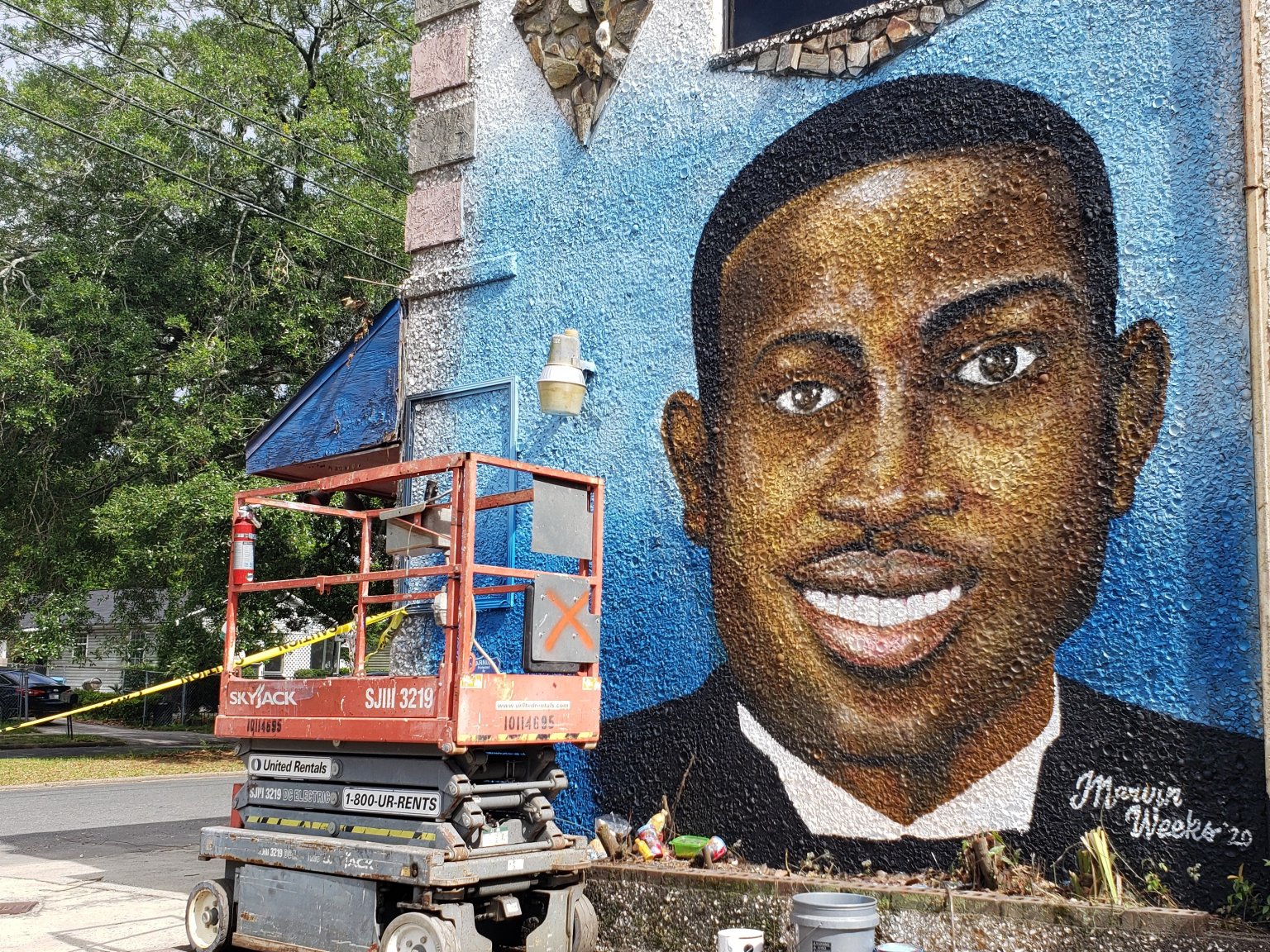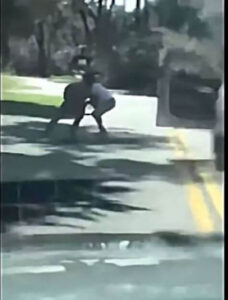
Georgia lawmakers are considering revising the state’s citizen’s arrest law after a southeast Georgia prosecutor cited it as a justification for the actions of men in a truck who pursued Ahmaud Arbery down a neighborhood street near Brunswick and tried to detain him before his killing.
Citing a lack of probable cause to arrest Travis McMichael, 34, and Greg McMichael, 64, who are now charged with Arbery’s murder, the prosecutor wrote that the men in the truck were in “hot pursuit” and had “first hand probable cause” that “Arbery was a burglary suspect.”
That interpretation drew nationwide disbelief even before the Georgia Bureau of Investigation last week arrested a third man who was at the scene of the Feb. 23 confrontation, William “Roddie” Bryan Jr., 50, a neighbor who filmed the viral video of the shooting. Bryan is now also charged with murder as well as false imprisonment. The McMichaels and Bryan are white; Arbery was black.
A preliminary hearing is set for the three men June 4 at the Glynn County Courthouse to determine if there is enough evidence to move forward with the case.
No evidence has surfaced that Arbery, 25, was a burglar although another video showed him wandering briefly through a home under construction. Still, in the early April letter by Waycross Judicial Circuit District Attorney George Barnhill he wrote that in his reading of Georgia’s citizen’s arrest laws and other justifications he found “insufficient probable cause” to arrest the McMichaels.
The resulting intense scrutiny is creating bipartisan support among some state lawmakers to amend the Civil War-era citizens arrest law to make it harder for it to be used to justify vigilante justice.
But how likely is that to happen during the 2020 legislative session, which was suspended in March to contain the spread of COVID-19 and is set to resume this month with laser focus on plugging massive budget holes?
Rep. Jeff Jones, a Brunswick Republican, said he’s working on legislation that would keep the citizen’s arrest law on the books but better clarify the use of deadly force so the person trying to make the arrest doesn’t provoke a tragic outcome.
Lawmakers can start talking about the proposed bill this year, but chances of it gaining traction are much better in next year’s session because the Georgia General Assembly’s deadline for one bill to pass from one chamber to another expired in March. Updating the citizen’s arrest law this year would require tacking it onto another similar bill now.

With the state’s all-consuming budget woes those legislative maneuvers are improbable, but not impossible, Jones said.
“The sentiment is such with the Ahmaud Arbery murder, it might gain traction and end up getting through this year in the remaining days,” he said.
Some lawmakers want citizen’s arrest power wiped off the books altogether.
“It’s not the days of the horse and buggy,” said Rep. James Beverly, a Macon Democrat. “It’s not the days back in the 1800s. When the law was created, you may have needed citizens to get involved because it took too long at times, it could be days for someone to get there.
“Now we’re talking minutes,” Beverly added. “When someone witnesses a crime, call 911. That’s what it’s for.”
The debate over citizen’s arrest coincides with calls by the Georgia House Speaker, the Georgia Black Legislative Caucus and others who are pressing to pass a hate crimes lawwhen the session 2020 Legislature is set to resume next month.
One way to keep the law while reducing the chance it will be used to a tragic end is to make it clear that deadly force is illegal while making a citizen’s arrest, said Sen. Harold Jones, an Augusta Democrat.
“Those guys did not have the legal right to chase (Arbery) with guns even if they thought they were doing some sort of felony citizen’s arrest,” the attorney said.
While changes to the citizen’s arrest law seem a longshot for the 2020 legislative session, a hate crimes bill stands a much greater chance. The House already passed the legislation, and it only needs Senate approval without changes before Gov. Brian Kemp could sign it.
It also could gain traction as empathetic lawmakers are pressed to take action in response to the Arbery killing. Republican House Speaker David Ralston wants to get the hate crime law passed once the session resumes, said his spokesman Kaleb McMichen.
“Once that law is on the books we can turn our attention to other conversations,” he wrote in an email.
Friday, Republican Lt. Gov. Geoff Duncan said that “Georgians will not stand for hate and violence” as he publicly backed passing the hate crime bill, albeit with some unspecified changes.
Ralston and the bill’s sponsor, Dacula Republican Rep. Chuck Efstration, say they worry amending the bill means it will need to return to the House for a vote on changes, which will greatly increase the odds against it getting through the Legislature this year.
Citizens arrest law can make for deadly combination
Georgia State University law professor Russell Covey said the Arbery shooting is a prime example of the problem in the citizen’s arrest law state legislators should fix.
“The thing that makes this case so troubling is it’s not just the citizen’s arrest law in itself, but when combined with Georgia’s open carry law, the stand your ground defense provision creates a situation where unnecessary violence might occur,” he said.
Typically, Georgia’s citizen’s arrest law is used by security guards or law enforcement officers while outside of their jurisdiction.
“I think people, for the most part, are happy to defer to the police officers to enforce the law,” Covey said.
Generally, people should rely on law enforcement when they see a crime in progress and not try to intervene, said Bibb County Sheriff David Davis.
“The problem that a citizen runs into if they don’t have some type of identification or they’re not some type of law enforcement, you don’t know who that is,” Davis said. “You have no way of knowing if that person is trying to make the citizen’s arrest or are trying to harm you in some way.”
Davis advises people to avoid making a citizen’s arrest unless they or others are in danger.
“The biggest help that person can be is to be a good witness and not put themselves in harm’s way,” Davis said.
For comprehensive statewide news coverage, visit Georgia Recorder







